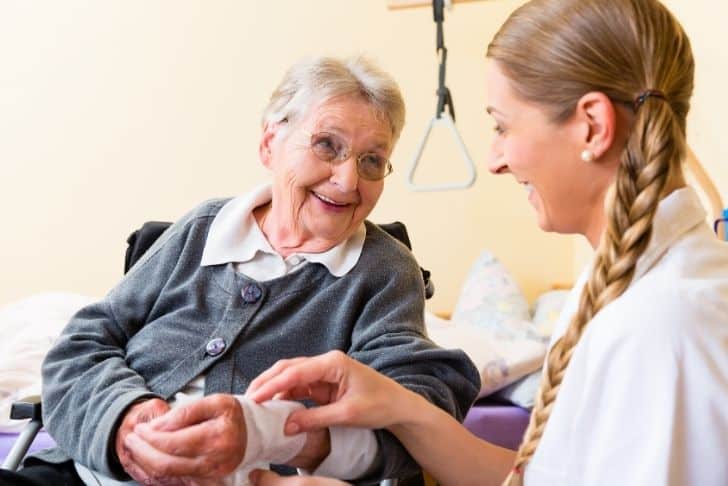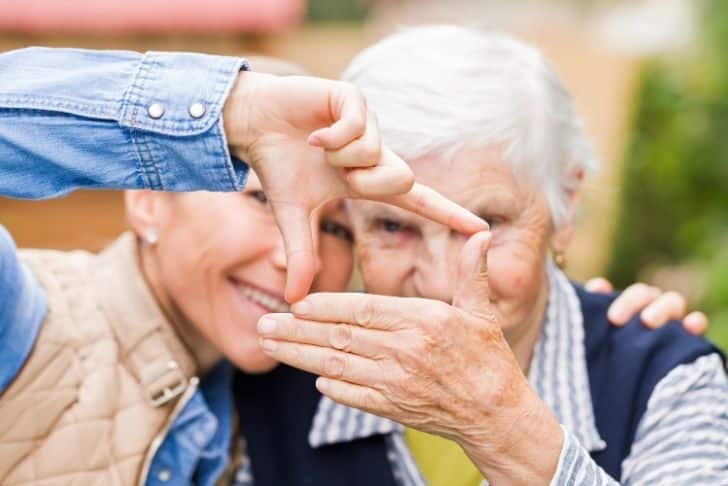As a caregiver for someone navigating the complex journey of Alzheimer’s and related dementias, each day brings its unique set of challenges. From assisting with bathing, grooming and getting dressed, to maintaining daily routine consistency, as well as promoting their independence, you are the lifeline and constant in their ever-changing world. All while trying to ease communication hurdles and creating a safe and comforting environment. This article provides you with practical, effective strategies; such as incorporating healthy activities, ensuring optimal safety at home, along with timely and essential future care planning.
It also emphasizes the importance of self-care, and highlights a range of helpful resources; like the National Institute on Aging, MedlinePlus, and the Alzheimer’s & Related Dementias Education & Referral Center, as part of your support network. Compiled and reviewed by NIA scientists, it’s your guide to facing these challenges head-on, offering you peace of mind as you provide invaluable care for your loved one.

Understanding Alzheimer’s and Related Dementias
Alzheimer’s and related dementias are conditions that affect cognitive abilities. These diseases are progressive, meaning they gradually worsen over time.
Basics of these diseases
At the foundation of these illnesses, they affect memory, cognitive function, and behavior, leading to challenges in everyday tasks. This occurs due to damage to the brain cells, which disrupts the connections that help us remember, learn, and communicate.
Signs and Symptoms
In the early stages, you might notice forgetfulness, difficulty completing familiar tasks, or confusion with time or place. As Alzheimer’s or dementia progresses, these symptoms become more pronounced, potentially leading to mood swings, personality changes, and severe memory loss.
How these conditions affect daily activities
These diseases can make daily tasks challenging. For example, the individual might have difficulty remembering how to prepare a meal, how to get to a familiar location, or forgetting where they left common objects.
Progression and Stages of the diseases
Alzheimer’s and dementia typically progress in stages, starting from mild symptoms to severe cognitive decline. As individuals progress through these stages, they become more reliant on caregivers for help with everyday activities, personal care, and comfort.
Roles and Responsibilities of Caregivers
Providing care for a loved one with Alzheimer’s or dementia is rewarding, but it can also be challenging.
Common caregiving tasks
As a caregiver, you might assist with tasks such as bathing, grooming, dressing, managing medication, helping with mobility, and providing mental and emotional support.
Emotional aspects of caregiving
Emotionally, it can be tough to see the changes in your loved one. You might feel overwhelmed, frustrated, or sad at times. It’s essential to acknowledge these emotions and seek support when needed.
Supporting patient’s independence
Wherever possible, encourage your loved one’s independence. Simple aids like shower chairs, easy-to-use clothing, and visual reminders can help maintain regular activities and a sense of autonomy.
Communicating with individuals with dementia
Communication can be a significant challenge. Patience, understanding, and empathy become essential tools in your communication toolkit. If communication becomes challenging, providing space, ensuring comfort, and effortlessly changing subjects can sometimes help defuse stressful situations.
Establishing Regular Routine and Activities
Routine can bring much-needed sense and order to both the caregiver’s and the person with dementia’s daily lives.
Creating a daily routine
Start by helping the individual keep track of daily tasks and events. A predictable routine can be reassuring and make tasks easier to manage.
Importance of consistency
Consistency also plays a key role, as it reinforces memory and understanding, reducing confusion and anxiety.
Encouraging participation in household chores
Encourage your loved one to be actively involved in daily activities. Participation in household chores not only fosters independence but also offers a sense of responsibility and accomplishment.
Organizing regular exercise and healthy meals
Physical activity and balanced nutrition play a crucial role. Encourage regular, moderate exercise and a diet rich in fruits, vegetables, and lean proteins.
Modifying Home Environment for Safety
To ensure safety, it is necessary to adapt the home environment to suit the needs of the person with dementia.
Identifying and removing tripping hazards
An essential first step in this process is identifying and removing any potential tripping hazards that can lead to falls or other accidents.
Changing and improving household lighting
Proper lighting is another crucial factor. Ensure areas are well-lit to prevent accidents and reduce confusion caused by shadows or low light.
Securing harmful substances
All harmful substances should be stored out of reach or locked away to prevent accidental ingestion or misuse.
Simple changes for improved safety
Sometimes, simple changes make a significant difference. For example, removing confusing patterns on walls and floors can reduce disorientation; easy-to-use appliances can make everyday tasks less daunting.

Communicating Effectively with the Patient
Strategies for communicating effectively can vary from person to person, based on their level of cognitive decline.
Strategies for effective communication
Sometimes, non-verbal cues can communicate volumes. Body language, facial expression, and touch can be reassuring and calming.
Coping with communication difficulties
When difficulties arise, patience is vital. It’s essential to give the person time to respond, even if they take longer than usual.
Using alternative methods of communication
Don’t hesitate to use alternative methods of communication. Images, music, or objects can sometimes be more effective than words.
Maintaining comfort and patience during interactions
Through it all, maintaining a comfortable, reassuring environment is key. Be patient and considerate during interactions, remembering that the person is not intentionally forgetting or being difficult.
Taking Care of One’s Self as a Caregiver
In addition to providing care for your loved one, it’s critical to take care of yourself too.
The importance of self-care for caregivers
Self-care isn’t selfish; it’s necessary. It ensures you can provide the best care for your loved one while maintaining your health and wellbeing.
Balancing responsibilities and self-care
Striking a balance might seem difficult, but by seeking help, you can manage your responsibilities better while incorporating self-care activities into your routine.
Seeking and asking for help
There might be times when you feel overwhelmed; don’t hesitate to ask for help. There are plenty of resources and support systems available to assist you.
Maintaining physical, emotional, and mental health
Regular exercise, a healthy diet, and hobbies you enjoy can serve as great coping mechanisms. Consider meditation or seeking mental health support if you’re feeling particularly stressed or overwhelmed.

Recruiting and Managing Help
When you need external help, consider both professional and voluntary options.
Sources of professional and voluntary help
Many services like home care agencies, respite care facilities, and volunteer organizations can provide the necessary relief and support you need.
Working with a home care agency
When working with a home care agency, it’s crucial to communicate your expectations effectively, ensure they can meet your specific needs, and establish clear communication channels.
Setting expectations and communicating with helpers
Whether you’re working with paid caregivers or volunteers, setting clear expectations about their roles and responsibilities aids in smooth transitions and optimal care.
Balancing costs and quality of care
Finding a balance between costs and quality of care is essential, considering your financial situation without compromising the quality of care your loved one receives.
Planning for Progression of the Disease
As Alzheimer’s or dementia is progressive, it’s crucial to prepare for the future as much as possible.
Early planning methods
Early planning includes discussing preferences with your loved one while they can still voice their preferences, documenting these discussions for future reference.
Discussing and documenting care preferences
Ensuring you have discussed and noted care preferences can alleviate some of your stress, knowing you’re honoring their preferences.
Legal and financial considerations
Start assembling legal and financial documents, and consider involving a professional to ensure everything is in order.
Exploring long-term care options
Also, explore long-term care options for care provision in the later stages of Alzheimer’s and dementia.
Accessing and Leveraging Resources
There are several resources available to assist caregivers.
Finding and using local resources
Local resources, like caregiver support groups and adult daycare centers, can provide valuable relief and advice.
Understanding and accessing national resources
National resources provide various services, from helplines and educational resources to caregiver’s guides and research updates.
Online information and support resources
Online platforms offer a wealth of information and support resources, including online support groups, webinars and virtual training, and access to the latest research.
Making use of available helplines
Don’t hesitate to use helplines when you need support, information, or just someone to talk to about your experiences and challenges.
Understanding Future Scenarios and End-of-Life Care
Planning for the end stages of dementia allows for a smoother, less stressful progression as the disease advances.
Stages and progression of Alzheimer’s and related dementias
Understanding the progression helps prepare for changes in care needs, behavior, and symptoms.
Considering hospice care
Hospice care should be considered in the final stages. This care focuses on maintaining comfort and quality of life during the final months.
Grieving and emotional support for caregivers
Grieving is a natural part of the process, and seeking emotional support during this time is essential for your wellbeing.
Post-loss considerations and steps
After the loss of your loved one, there are several considerations and steps, including financial closeouts, notifications, and continuing to honor their memory. It’s also a time to focus on your healing and wellbeing.
Alzheimer’s and dementia caregiving come with many challenges, but remember, you’re not alone on this journey. Resources and assistance are readily available, and self-care is just as important as the care you provide your loved one.
